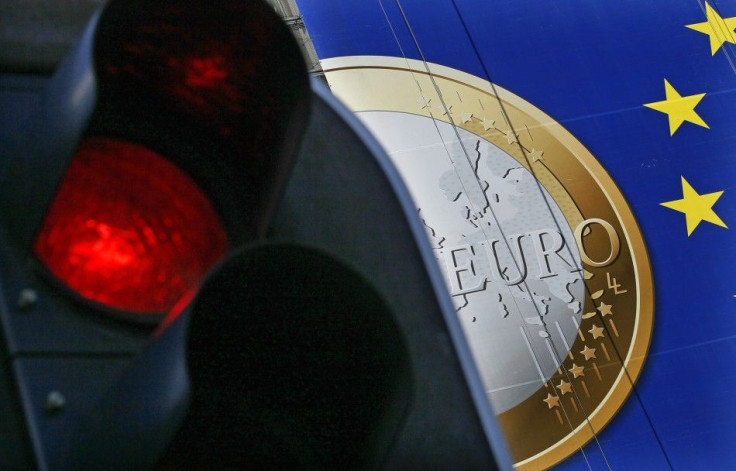Recession Looms as Euro Zone Economy Contracts in Q4

The euro area's economy shrank in the fourth quarter, raising fear that the euro bloc may already be sliding back into recession as spending, exports and manufacturing collapsed.
Gross domestic product in the final three months of 2011 declined 0.3 percent from the third quarter, and rose 0.7 percent compared with the year-ago period, the European Union's statistics office said, confirming an initial estimate published on Feb. 15.
Exports fell 0.4 percent from the previous quarter, the first drop since the second quarter of 2009 when the region was last in recession. Imports into the euro zone fell 1.2 percent.
Deep cuts in government spending and rising unemployment capped European household spending, which was down by 0.4 percent. Government expenditures fell 0.2 percent.
Across the euro zone, industries ranging from mining to manufacturing slumped 2 percent in October to December from the third quarter. Construction fell 0.2 percent.
Two straight quarters of falling output has already pushed six euro zone countries -- Greece, Portugal, Italy, Slovenia, the Netherlands and Belgium -- into recession.
Spain, Germany, Czech Republic and Estonia have registered their first quarter of contracting GDP and will soon be in recession if the trend continues.
Recent data have suggested the euro area as a whole might be in recession. Unemployment in the 17-member euro zone hit an all-time high of 10.7 percent in January. The figure represented the loss of an additional 185,000 jobs from December. The situation was particularly severe in Spain, where unemployment rate stood at 23.3 percent.
A recent survey of business activity showed contraction in February, with activity in Italy and Spain -- euro zone's third and fourth largest economies -- falling at a faster rate. Meanwhile, inflation rose.
Olli Rehn, the European commissioner for economic affairs, said Tuesday there are signs of improvement.
While the euro area is currently in a mild recession there are at the same time signs of stabilization. I am convinced that, as a result of our collective efforts, and if we keep up our recent decisive action, we can witness a turning of the tide in the coming months in the European economy, Rehn told a conference in Paris, according to Reuters.
He also said the European Central Bank's long-term liquidity offer has lifted the risk of a borrowing squeeze in the EU area.
The risk of a credit crunch in the European economy has been prevented, Rehn said.
© Copyright IBTimes 2025. All rights reserved.






















